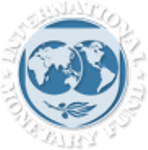Social Watch news
Published on Fri, 2017-11-03 12:27

Photo: Times of Malta
|
The lack of any substantive cohesion in Malta between a number of policies, such as education or health, with sustainability is a worrying factor, according to the Maltese Social Watch report. The general absence of statistical data, particularly of disaggregated data by various social and economic criteria, resulting from a lack of collection or from the prevalent praxis of not making it public makes the reporting difficult. Yet, there is an obvious lack of coherent and comprehensive approach to the legal and policy framework relating to the SDGs. This also belies a weak vision both on the action required at a national level and in terms of Malta’s role within the international community and its contribution (despite it being a small country) at the global level.
|
Published on Fri, 2017-11-03 12:20

Photo: Christopher Irwin /
Creative Commons License
via Flickr
|
In Morocco, the Social Watch team informs, the kingdom’s supreme auditing body has reported a systematic lack of compliance with their contractual obligations by private providers of public services in water, electricity and sanitation: In the city of Tangier, the “Amandis” Group, affiliated to the French group “Veolia”, carried out less than one third of its commitments during the first five years of its operations. In Casablanca, only 45,806 ‘social connections’ (benefiting people in poverty) were carried out in 10 years (1997-2006) out of 90,000 promised by the French company Lédique of the Suez group.
|
Published on Fri, 2017-11-03 12:04
The Global Justice Center, the Eyzidi Organization for Documentation, the Iraqi Al-Amal Association, the Iraqi Women Network, Madre and Yazda sent an open letter addressed to Prime Minister Haider al-Abadi, to the chief of High Judicial Counil and to Mr. Ibrahim Jaafari- Foreign Minister regarding the Terms of Reference for UN Security Council resolution 2379 (2017) on Daesh accountability.
The CSOs demand that those ToR, which are currently being drafted, have a gender justice and a victim-centered approach. In particular, the recommendations stresses the need for identifying an applicable legal framework for war crimes, crimes against humanity and genocide, legal reform, ensuring investigative efficiency, gender expertise, due process, victim and witness protection, community outreach and civil society engagement.
|
Published on Fri, 2017-11-03 11:31
A recently launched report by the Arab NGO Network for Development aims at defining the gender dimensions of informal labor in the region. The study on the gender dimensions of informal labor, written by Dr. Howaida Adly, Political Sciences Professor at the National Center for Sociological and Criminilogical Research (Egypt), focus on commonalities between all Arab countries in terms of labor and gender, and on the differences among them. The analysis is based on national reports received from the different Arab countries. A common limitation is that data is lacking to allow for a comprehensive assessment of the gender dimensions of informal labor.
|
Published on Mon, 2017-10-30 09:02
The implementation of the 2030 Agenda in Tunisia suffers from almost the same challenges encountered by the rest of the Arab economies. It is not legally binding and it provides the government only with guidelines. It also remains dependent on the good will of the government and its own priorities. It is subject to different threats such as instability, regional conflicts, immigration and displacements, demographic movements, social inequalities, economic crises and high public indebtedness. The economic crisis and the lack of funding sources are often mentioned to justify the incapacity of the Tunisian government to invest in infrastructure and development projects.
|
Published on Fri, 2017-10-27 13:26
Since 2015, with the election of a new government, Argentina has seen a radical change of policies, from a development model based on strengthening local markets, trade protectionism, expansion of social rights and an active role of the State in redistributing the income from agricultural exports, to a model inspired by neoliberalism, free trade, competitiveness in global markets and tax exemptions.
According to the Argentinian Social Watch report, “this has led to a substantial redefinition of the role of the private sector in development policies”, of which the privatization of State-owned land is a striking example. Since 2015, the government has authorized the sale to private investors of 93 State-owned extensions, half of them in the city of Buenos Aires, where one-tenth of the population lives in overcrowded conditions and some 200,000 people live in slums.
|
Published on Fri, 2017-10-27 13:02
The IMF’s approach towards social protection "has been principally oriented around the desire to reduce social protection coverage and contain expenditure, rather than ensuring adequate levels of protection for all". The Global Coalition for Social Protection Floors (GCSPF) expressed its deep concerns about these IMF policies and sent a statement to Ms. Christine Lagarde (Managing Director of the International Monetary Fund - IMF) and the Executive Directors of the IMF in order to draw their attention on the issue and in the hope to influence a reconsideration of their position.
|
Published on Wed, 2017-10-25 21:16
The World Bank, together with the International Monetary Fund (IMF) and the development banks, have been proclaiming since 2015 that “to meet the investment needs of the Sustainable Development Goals (SDGs), the global community needs to move the discussion from ‘billions to trillions’” — that is from billions in official development assistance (ODA) to trillions in investments of all kinds: public and private, national and global, in both capital and capacity.
|
Published on Mon, 2017-10-23 00:00
Join the Reflection Group on the 2030 Agenda for Sustainable Development, UNRISD and FES for the Geneva launch of the Spotlight on Sustainable Development 2017 report. Carrying the subtitle “Reclaiming policies for the public. Privatization, partnerships, corporate capture and their impact on sustainability and inequality – assessments and alternatives”, the civil society “shadow” report provides a wide-ranging independent assessment of the implementation of the 2030 Agenda and its Sustainable Development Goals. At the event, contributors will present and discuss key findings and recommendations of this year’s report.
|
Published on Sun, 2017-10-22 08:27
The SDGs have served as a pretext to include private sector representatives on high-level governmental bodies in Thailand. In the Sustainable Development Committee, civil society only plays a minor role when compared with businesses.
A government-initiated Civil-State (Pracha-Rath) policy aims to promote the role of the private sector in investment, establish cooperation between private sector and community enterprises and develop new agricultural schemes. Although this claims to help farmers by lowering the prices of chemical fertilizers, the Social Watch report notes that “the real intention is to boost the sales of these chemical agricultural materials”. The policy is “irrelevant to sustainable agricultural development” it claims, “because excessive usage of pesticides has always been a major problem for Thai farmers”.
|
SUSCRIBE TO OUR NEWSLETTER
Submit

|











